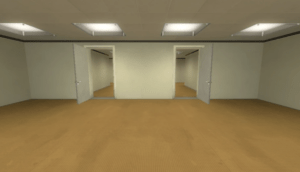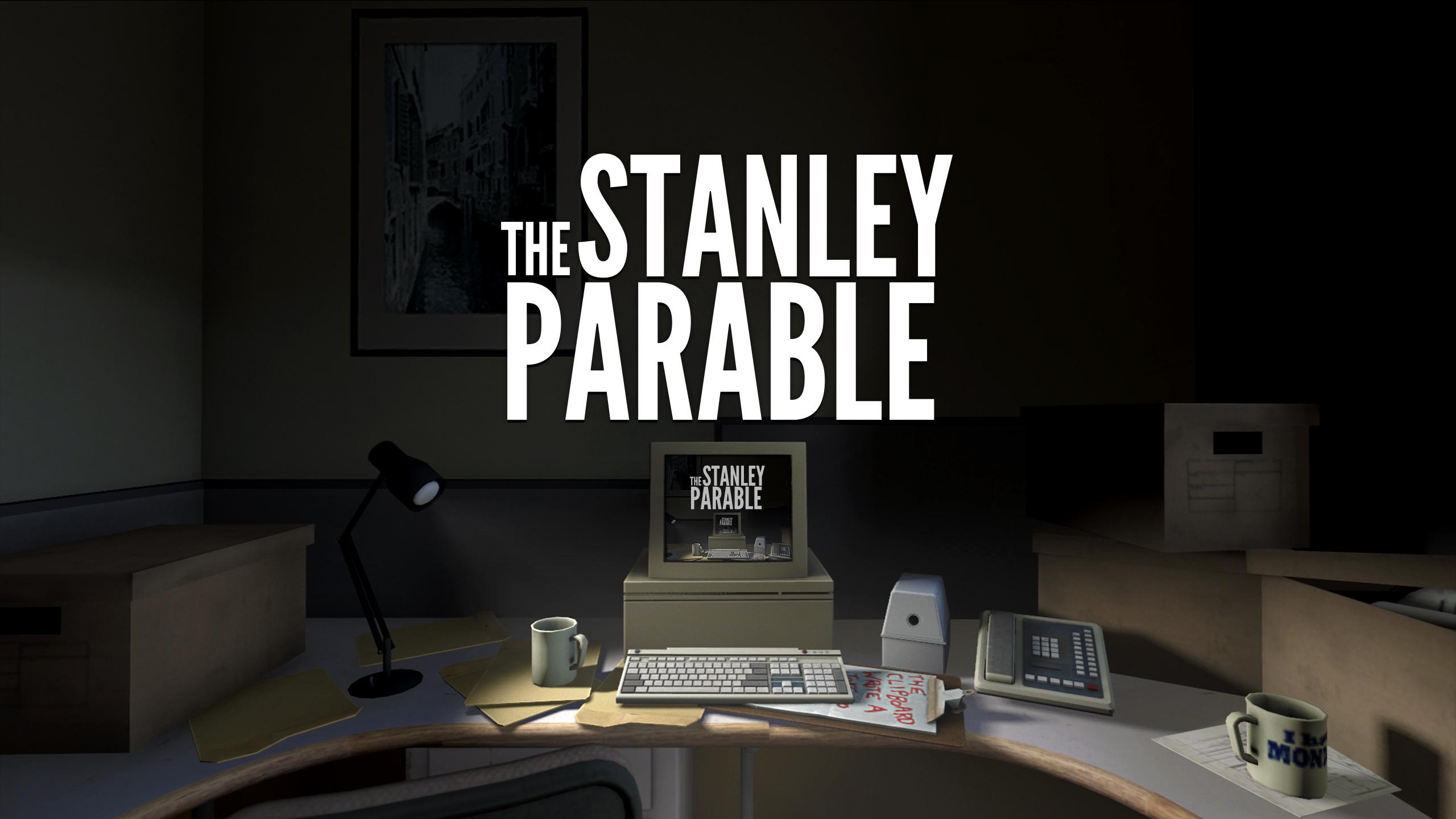The Stanley Parable is a walking game, playable on PC, and created by Davey Wreden and William Pugh in 2013. While it doesn’t have a particular “audience”, it’s a highly humor-, choice-, and narrative-driven game that appeals to a wide range of people; its mechanics are extremely beginner-friendly, as the most complex action is simply walking and basic navigation. The Stanley Parable uses walking as a means to encourage exploration and different choices, as well as a way to place the player in the “shoes” of the main character and embody themselves in the game’s choices.
The opening cutscene of the game, where Stanley is introduced, is the only time we actually see ourselves in the game. After introducing Stanley, a cookie-cutter character who works in an unnamed building doing a nonsense task, the cutscene transitions from a top-down view of Stanley into a first-person view, from which the controllability of the character begins: as the omnipresent narrator quotes, “he got up from his desk and stepped out of his office…” This opening cutscene lets us easily place ourselves in Stanley’s shoes: there’s so little to identify Stanley by – not jobs, not location, and we don’t even see his face – that it’s easy to place ourselves in the role of Stanley and take control as if we were put in the situation of having our entire workplace mysteriously devoid of life. From then, the entire office space is open for us, the player, to explore.

With no mechanics other than walking to utilize, the only goal of the player is to explore the map. Here, the (hilarious) narration of the game complements the space as a way to encourage the player to walk: the first major decision presents the player with an option between two open doors, though the narrator says that “he entered the door on his left”, it’s clear that there’s an option to enter the door on the right. Though walking to the left is allowed, walking to the right shows that, in fact, the door on the right is not blocked off by some invisible barrier. This, in turn, leads to some dialogue as a reward, depicting how Stanley is starting to deviate from the “intended narrative” of the game, and in turn signaling that further choices that deviate from the narrator’s suggestions will unlock even more things.

As the player walks more, many different choices present themselves: you can choose to stay in a broom closet (this is an incredibly funny choice, because the narrator gets increasingly more frustrated every time you choose to do so, and will eventually board up the door), walk off a ledge that will certainly kill you (where the narrator will sarcastically comment, “But in his eagerness to prove he is in control of the story and no one gets to tell him what to do, Stanley leapt from the platform and plunged to his death. Good job, Stanley. Everyone thinks you are very powerful.”), and countless other choices. As you go on, the narrator addresses you not in third person as if telling a story, but rather, by speaking to you directly. Every inconspicuously open door and mysterious hallway in the map invites you to walk down it, and walking almost always rewards you with hilarious dialogue from the narrator.
The way these options for exploration are presented complements the game’s choice to put you in Stanley’s shoes by simply seeming so enticing. Walking at Stanley’s somewhat leisurely pace lets you immerse yourself more closely in the game, and makes it easy to embody yourself: after all, if you were stuck in Stanley’s situation, wouldn’t you try to open the mysterious panel or walk through that very obviously boarded up door?
Ultimately, the game presents us with a philosophy of choice. Follow all described actions, and you’ll be met with a short playthrough with its own dedicated ending. But even in this ending is the acknowledgement that you’ll never discover some of the other secrets: why are the coworkers missing, etc. The game is designed, and strongly hints, for you to question the orders you are given. Through walking, and through exploration, you gain much more in both content and enjoyment than simply if you, and Stanley, followed the beaten path.




